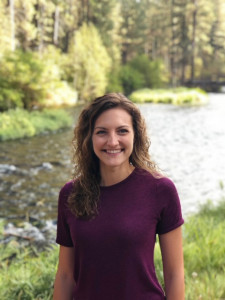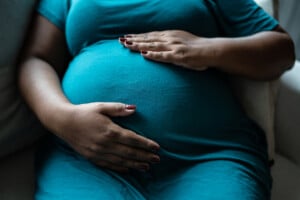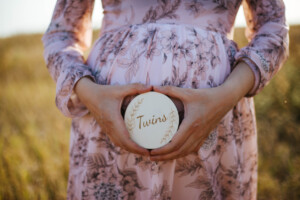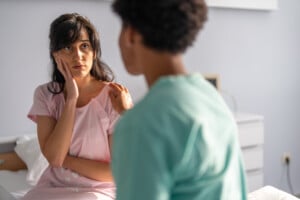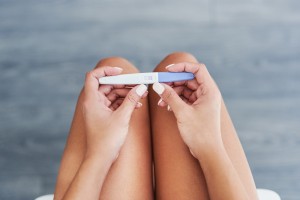No matter how far along you were, pregnancy loss is devastating. The fear of conceiving and experiencing another loss can be debilitating. A pregnancy loss can leave you feeling alone and unsure of where to turn or what to do next. Unfortunately, there’s no rule book for recovering from a loss. Every person and couple grieves differently. It’s important to give yourself time to process and feel sad, angry, scared, or whatever else you may be feeling. Honor the grief process, no matter what that looks like for you.
It’s common to feel alone, like you’re the only one who’s experienced a pregnancy loss. Even though it’s not common to talk about, the chances are high that you know someone who has gone through exactly what you’re going through. It’s estimated that 10-15% of known pregnancies end in miscarriage before 12 weeks gestation.11 Another 1-5% of pregnancies end in miscarriage between weeks 13 and 19 gestations.11
What Causes Pregnancy Loss?
One of the most common causes of pregnancy loss during the first trimester is chromosomal abnormalities or genetic errors, at 50-60%.12 Other causes of pregnancy loss include:1,2,3,4,5,6
- Thyroid autoimmunity
- Structural/lining issues
- Infections
- Environmental factors
You can greatly improve chromosomal abnormalities and hormone levels with targeted nutrition, supplements, and lifestyle support, reducing your risk of having another miscarriage.15,16,17 Implementing nutrition and lifestyle changes will support the health of the egg during the 90- to 100-day (three- to four-month) maturation period.18
During the three to four months before ovulation (the preconception period), an egg undergoes a major transformation in size and starts producing much more energy.19 The egg is essentially genetically reprogrammed by picking and choosing chromosomes at this time. If something goes wrong during this time, there will be chromosomal abnormalities.
Please know that there are many things we simply can’t control when it comes to pregnancy loss. Even though nutrition and lifestyle play a role in limiting chromosomal abnormalities and decreasing the risk of pregnancy loss, this does NOT mean that YOU did something wrong during these three or four months. The glass of wine or the donut that you had did not cause your miscarriage.
Supporting egg quality with diet and lifestyle can help reduce miscarriage, but it can’t prevent it.20 We can only do the best we can with the information we have. There’s no sense in blaming yourself for what you didn’t know before your loss. There’s still so much we don’t know, and so much is out of our control.
When Is It Safe To Get Pregnant Again?
It’s common to wonder whether it’s safe to conceive after a loss or whether you’re at increased risk of another loss. First, it’s important to talk to your healthcare provider and consider when you’re emotionally ready. Research shows that conceiving within three months of an early pregnancy loss (within the first 12 weeks of pregnancy) is associated with a decreased risk of another miscarriage.13 However, this can depend on what contributed to the first loss. Meanwhile, conceiving within seven months of a miscarriage is linked to increased anxiety during the subsequent pregnancy.14
If you suffered a miscarriage during the second trimester (13-19 weeks gestation), research shows you may benefit from waiting nine to 12 months before trying to conceive again. Conceiving within three months after a loss in the second trimester is associated with an increased chance of recurrent pregnancy loss.7-10
Conceive After Loss: Where Should You Start When You’re Ready To Conceive Again?
There’s no one-size-fits-all approach to this. Working with an expert in this field to conduct necessary testing and guide you based on your unique situation will provide you with the best outcomes. But there will always be things out of our control when it comes to pregnancy loss. However, focusing on what you can control can help you move forward while improving egg quality and decreasing the risk of another loss.
Where To Start When Conceiving After Pregnancy Loss
When you feel ready, start focusing on the things you can control, such as:
- Nutrition: Nutrients will help your body heal while supporting egg quality for future conception. Focus on nutrient-dense foods like animal protein, fish and seafood, and various fruits, vegetables, nuts, and seeds.21,22
- Movement: Moving your body in a way that feels good to you decreases stress and supports healthy hormone balance and regular ovulation.21,23
- Sleep: Aim for seven to nine hours of quality sleep each night.24,25 Sleep is a time for our body to rest and repair, which is crucial for supporting egg quality and hormone balance.26
- Stress management: Seeking support can help you manage what you’re going through. Grief counseling can help you process the emotions. Lean on others who have experienced pregnancy loss, whether they’re friends, family members, or online support groups.27
Be gentle with yourself and lean on your loved ones. Your spouse may grieve differently than you do, and that’s okay, too. When you’re both emotionally and physically ready to try to conceive again after pregnancy loss, don’t hesitate to find the support you need.














